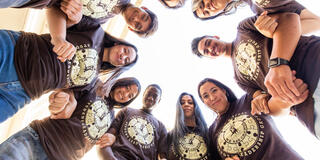
Upstander
A person who speaks or acts in support of an individual or cause, particularly someone who intervenes on behalf of a person being attacked or bullied.
We believe every student can become an upstander, whether by challenging negative stereotypes with family, standing up to a bully in their school, or encouraging civil discourse when neighbors disagree. Students in Facing History classrooms learn about the power of individual choices to shape history and explore how each of us can participate as citizens to create a more humane, just and compassionate world. With the readings and resources collected below, we invite you and your students to discover what it means to be an Upstander.
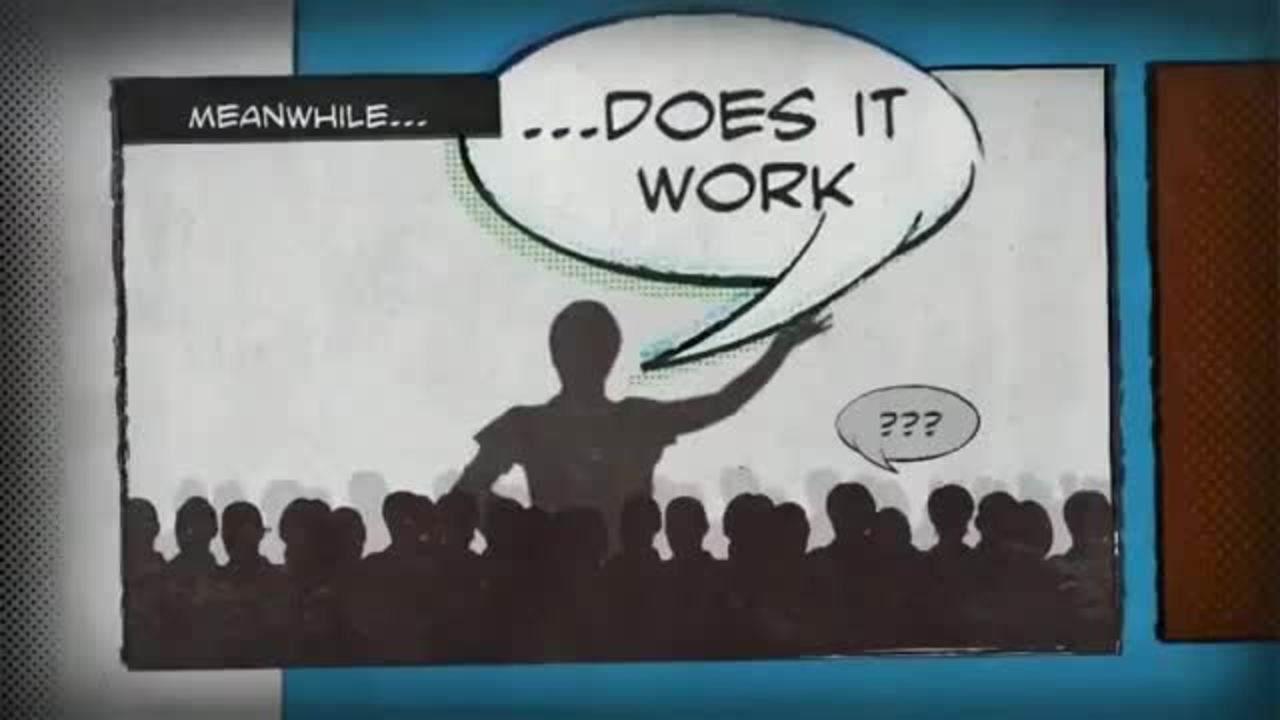
[MUSIC PLAYING]
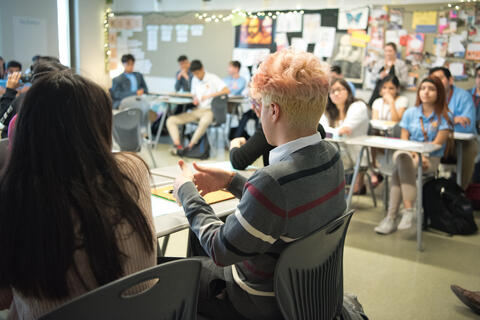
What Difference Can a Word Make?
What encourages people to act on behalf of others? Do words have the power to influence the choices people make? In 2014, two New Jersey high-school students began a campaign to promote a word, upstander, that gave a name to a behavior that is crucial for building stronger communities and a more humane world. Read and share “What Difference Can a Word Make?” and consider what encourages people to act on behalf of others.
Upstander Stories
Bullying at School
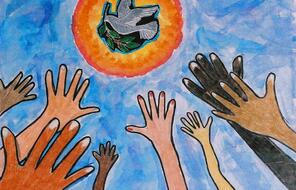
What it Takes to Be an Upstander

Young Poll Workers as Upstanders

Meet the History-Makers of Tomorrow
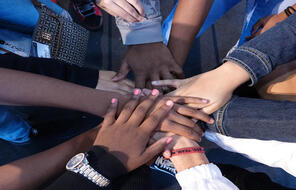
Leaving a Positive Footprint
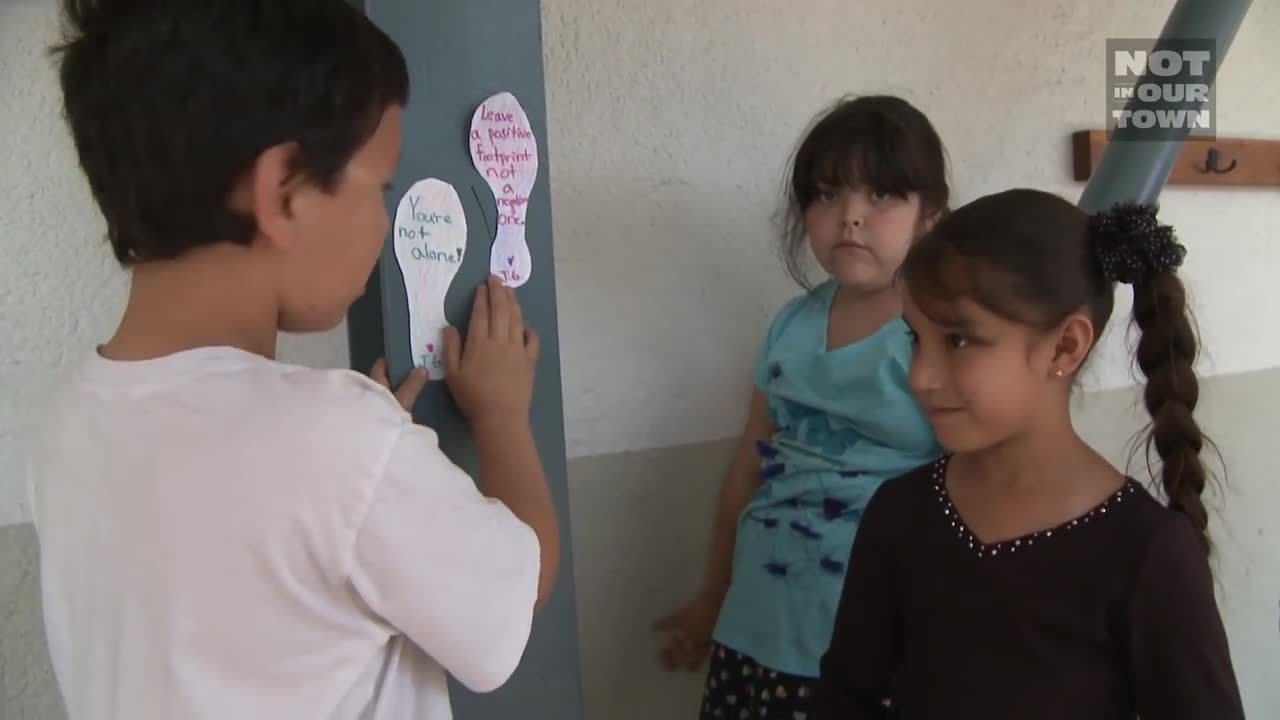
How to Be an Upstander: Acting against Indifference

If Not Me

Yellow Fever Upstanders

A Young Upstander Stands Up to Hate
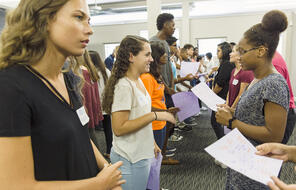
On Educating Upstanders - Ervin Staub

Donate now and together we'll build a better world
You might also be interested in…
All Community Read: A Spotlight on Disability Rights
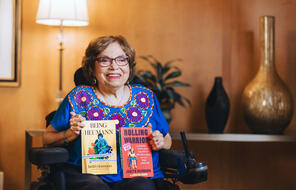
Acclaimed Educator Frank Stebbins on Facing History and Human Rights Education

How Facing History Helps Change the World
Teaching the History of Human Rights
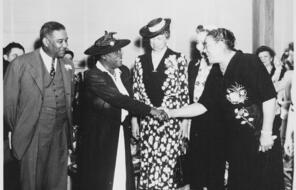
Roger Brooks to Retire as CEO of Facing History - Our Search for a Successor
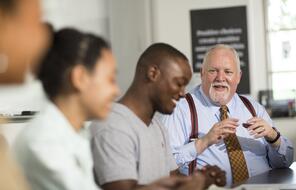
Introducing Ideas This Week
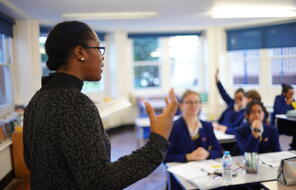
A Back to School Message for our Educators
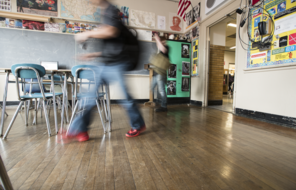
Welcome to Our New Website
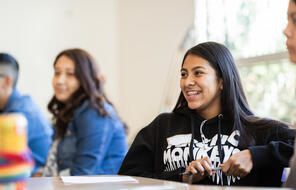
Disrupting Public Memory: The Story of the National Day of Mourning

Corporate Partner Spotlight: Marmol Radziner

Facing History & Ourselves Receives Historic Grant
Holocaust Education Amid Rising Antisemitism: An Interview with Leslie White


